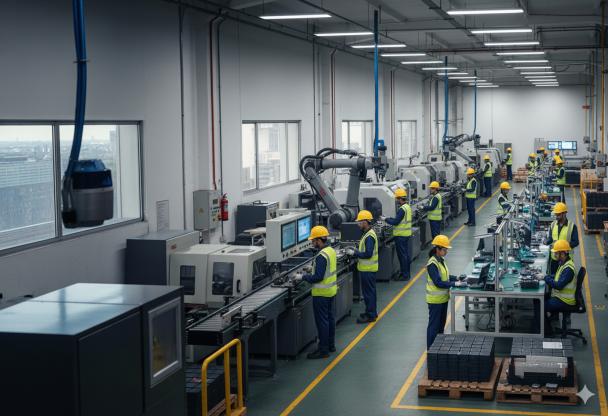India implemented four major labour codes aimed at modernizing decades-old laws and providing minimum wages, gratuity, and social security to over 400 million workers. Union Minister Mansukh Mandaviya called the reforms a “major step” for workforce welfare and a boost toward India’s development goals by 2047.
Key Labour Codes Introduced
The four new codes include the Code on Wages 2019, Industrial Relations Code 2020, Code on Social Security 2020, and Occupational Safety, Health and Working Conditions Code 2020. These codes consolidate and rationalize 29 existing labour laws, aligning India’s labour system with global standards.

Worker Rights and Benefits
The reforms guarantee timely minimum wages, appointment letters, equal pay and respect for women, gratuity for fixed-term employees after one year, and free annual health check-ups for workers above 40. Overtime wages must be double, and workers in hazardous sectors are entitled to full health coverage.
Coverage Across Worker Categories
The codes cover fixed-term employees, gig and platform workers, contract workers, women, youth, MSME employees, beedi and cigar workers, plantation workers, audio-visual and digital media workers, mine workers, hazardous industry employees, textile workers, IT and ITES employees, dock workers, and export sector workers. Benefits include social security coverage, formal employment documentation, safe working conditions, preventive healthcare, and grievance redressal mechanisms.
Enhanced Compliance and Safety Measures
Employers are required to provide mandatory safety committees in large establishments, protective equipment, and standardized workplace safety and health measures. Simplified compliance procedures, such as single registration, pan-India licenses, and returns, reduce administrative burdens while maintaining worker safeguards.
Focus on Inclusivity and Gender Equality
Women workers are legally protected against discrimination, receive equal pay for equal work, and may work night shifts and in all roles with consent and safety measures. Mandatory representation of women in grievance committees and expanded family coverage ensures inclusivity.
Social Security and Financial Protection
Workers in all sectors now receive provident fund, pension, insurance, gratuity, and other social security benefits. Gig and platform workers benefit from Aadhaar-linked universal accounts for portable welfare access, while contract and fixed-term employees are entitled to the same protections as permanent staff.Conclusion
The implementation of these labour codes represents a major overhaul of India’s labour system, ensuring rights, safety, and financial security for millions of workers across diverse sectors while modernizing employment practices for a 21st-century economy.
